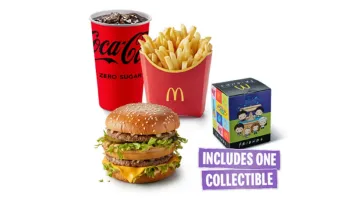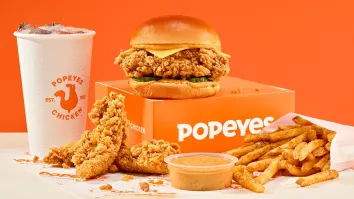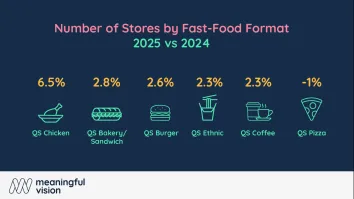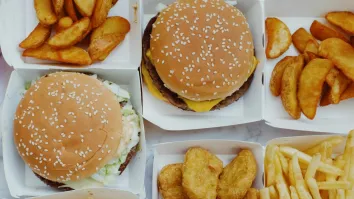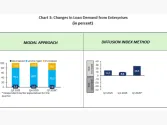
Five potential shopping trends in 2022
IGD also analysed how Omicron shook up Christmas shopping.
2022 will see a “division” amongst shoppers with a backdrop of rising financial pressures and taxes across various sectors, with shoppers who are better off having a very different experience to those who are less affluent, analysis from IGD has revealed.
Other possible trends include "reactive shopping”, where shoppers will be more dynamic, adapting their shopping habits to deal with challenges as they arise. 31% of respondents in their latest ShopperVista research said they use multiple stores to get the best offers.
IGD also expects shoppers starting to use non-traditional online retailers for a wider range of services and the rise of quick commerce loyalty schemes in 2022 due to significant growth potential and a diluted market.
Shoppers will also be focused on saving time and will look to retailers and suppliers for faster and more convenient solutions for how they shop, with IGD expecting quick commerce to play a “huge role” as it continues to grow.
Retailers and manufacturers are also expected to make long-term sustainable choices, it added.
IGD’s ShopperVista research also suggested that growing uncertainty surrounding the Omicron variant of COVID-19 directly impacted how and where shoppers bought their food at Christmas.
56% of IGD’s pool of respondents return to normality for Christmas, 32% said news surrounding Omicron affected their celebrations whilst 27% claimed to have avoided making plans altogether “due to the uncertainty of potential last-minute restrictions.”
“With the news in December creating some uncertainty of how people would be able to spend the festive season, shoppers looked to retailers and food manufacturers to help make the most of their plans, whatever their situation,” IGD head of shopper insights Rhian Thomas said.
“Our pre and post-Christmas research showed some shoppers approaching the season differently in how they conducted their shopping to ensure they didn’t miss out, from the channels they used to the types of products they bought.”
35% of shoppers claimed to start their shopping earlier this year – though some 17% left it until the last minute due to uncertainty over plans.
Of the shoppers who opted for convenience stores for some of their Christmas shopping, 45% did so to pick-up last-minute items. This was also the case for 25% of quick commerce shoppers.
Of those who said they were directly impacted by the Omicron variant, 44% claimed they shopped online or used click and collect to avoid going into stores.
Consumer confidence high despite Omicron’s spread
Despite the spread of the Omicron variant, new research from CGA shows consumer confidence about eating and drinking outside remaining high.
A recent Consumer Pulse survey of 2,000 consumers, conducted from 10 to 17 January, indicated 70% now feel confident about visiting pubs, bars and restaurants, now double the number of 34% who felt confident at the start of 2021, and a sharp increase on the total of 52% from CGA’s research in July.
Anxiety about COVID-19 lingers, with more than half (55%) of consumers worried about Omicron and two thirds (67%) concerned about a further peak in infections. Almost three quarters (71%), however, are feeling “very or quite safe” on their last visits—a small increase from July’s total of 69%.
Seven in 10 respondents are worried that venues may not survive the pandemic, whilst 62% are actively supporting local hospitality businesses. Signs that footfall should increase in the months ahead are showing, as one in five (19%) consumers plan to visit venues more often than they did last year—slightly more than the number who think they will make fewer visits (17%). A third also say they will “step up” their frequency of visits after the end of January.
CGA’s group CEO Phil Tate said: “After a very tough Christmas, these numbers are a welcome reminder of the huge underlying appeal of Britain’s pubs, bars and restaurants. Having missed out on so many hospitality occasions in 2021, and with concerns about safety easing, we can be cautiously optimistic that spending will rebound as the year goes on. However, it’s important to remember that some consumers remain anxious about going out. Hygiene and cleanliness will be important drivers of visits for some time to come, so venues will have to be vigilant on standards.”
He added: “Some hospitality businesses remain vulnerable after enduring nearly two years of very challenging trading conditions. But this is a resilient and resourceful industry, and with the right support from government it is well placed to drive Britain’s economic recovery in 2022 and thrive in the long run.”


